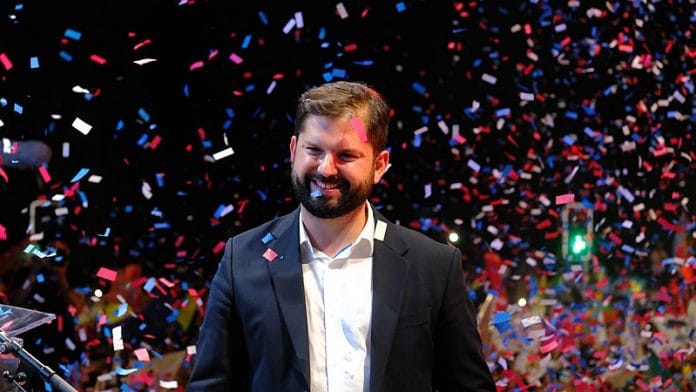Chile has been undergoing a considerable constitutional revamping, or at least it was supposed to. The newly elected millennial president Gabriel Boric, who won with a 56 per cent vote in March this year, comes from a far-Left, student movement background. His victory was a testimony to Chileans wanting change in the strictly conservative and patriarchal society.
In a public vote conducted in 2020, 80 per cent were in favour of writing a new constitution to replace the 40-year-old framework of dictator Augusto Pinochet. The dictator took office through a US-led military coup hence bringing a neo-liberal ideology to Chile, this faced its fair share of protests and riots in the 1980s. Currently, Chile still runs on these market-friendly policies, which have brought huge economic success to the nation, making it the most prosperous in South America.
Despite this, Chile has a vast wealth distribution disparity, making illegal housing rampant in the poorer sections of the society. Chile is also home to many indigenous communities that have been subjected to discrimination and ostracisation since the beginning.
The new constitution promised to resolve all these issues, giving the indigenous communities more rights and autonomy, maintaining gender parity, and even promising the LGBTQ community more respect and equality in the country. The new document was drafted in a year by a constitutional assembly elected by the people themselves, the provisions were released to the public and a plebiscite was conducted on 4 September. And guess what? Sixty-two per cent people voted against the new constitutional draft.
So, one is forced to ask, what changed?
Also read: Global inequalities don’t have easy solutions. But altering trade policy can be a start
The new draft constitution, if successfully enacted, would have become one of the most progressive charters in the world, giving over a hundred rights to the citizens, the highest across the globe.
- The eleven prosecuted indigenous tribes who make up 13 per cent of the Chilean population were supposed to be given autonomy to govern themselves with their own judiciary.
- The Senate was to be abolished
- Regional governments were to be empowered.
- Gender parity would be a crucial priority.
- Rights like Universal health care, right to decent housing, clean food, water, and education were to be given to the people
- Reproductive right to abortion was to be legalised.
What we see here are radical changes proposed to a conservative, “Catholic” society. It came as a threat to the traditional Chileans for whom this kind of liberal constitution was too fast too soon. The idea of making Chile “Plurinational” definitely came as a challenge to the national identity of the people.
Whenever we see, in any society or culture, the long-existing hierarchies being called out, people or the majority dissent. Every nation finds security in its singular identity and beliefs, especially when they are the majority.
To make things clearer, we can see what is happening in India itself. The Hindus would always want to maintain their majority status and if not actually but at least have the opportunity to undermine the other communities. That is why a Savarna Brahmin would never want a Dalit to be treated as an equal. The liberal school of thought, or the left in our country, has always been a good balance and check to the government but never a considered choice to be the government. There is a reason for India having a bleak Left political power.
To legalise abortion, give indigenous tribes their own court systems, empower women and the LGBTQ community, then become major deal breakers to a traditional society, leading to dissent, even if it comes at a cost of a welfare state. The 62 per cent opposition to the new draft in 2022 must have come with an overlap with the 80 per cent votes for a new constitution in 2020, which implies that some supporters of the Left-leaning Boric government were also sceptical of the new document.
Values like social justice, equality, and gender parity are purely moralistic ideals that might not be enough to run a nation.
Structure, institutions, rules, and regulations bring order to society, and people might not openly endorse them but a structured conservatism will always be above loose, radical liberalism, solely because it is liberalism. Democracies will always be powered by the citizens; dissent will always exist and citizens are too wise to be fooled by mere promises.
Bhagyashree Kotwal is a student at Ambedkar University, Delhi. Views are personal.







